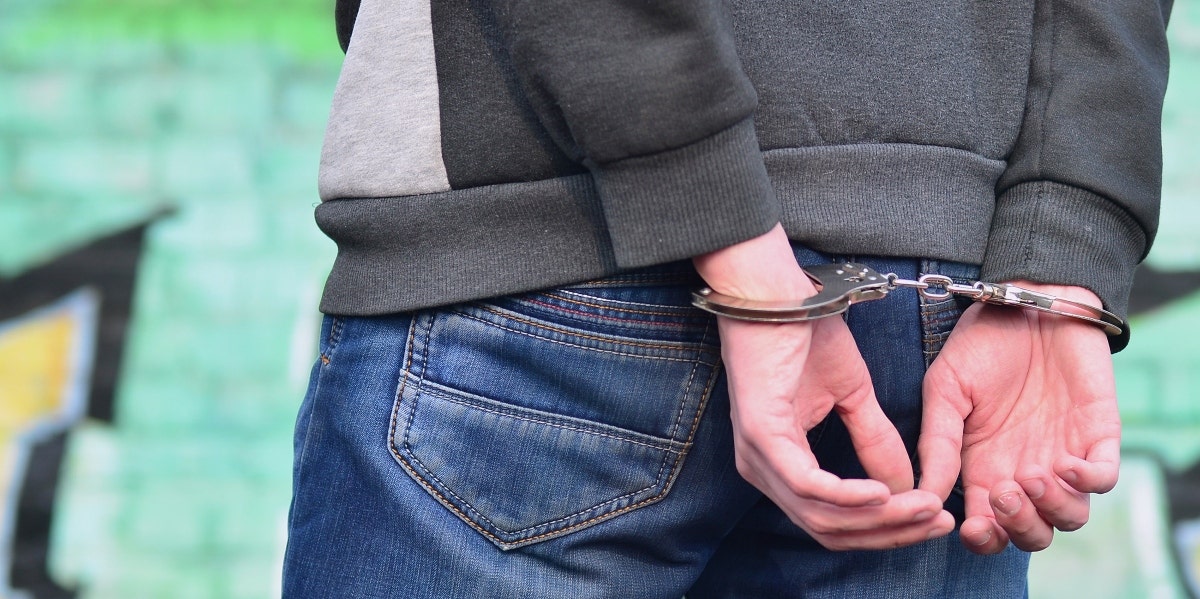One Year After Decriminalizing Drug Use, Oregon Addiction Treatments May Be A Model For All States
It could help save lives.
 Mehaniq / Shutterstock
Mehaniq / Shutterstock Over a year ago, Oregon undertook a rather bold initiative by decriminalizing small amounts of all drugs, including heroin, cocaine, and methamphetamine.
By decriminalizing personal-use drug possession, Oregon became the first state to recognize that addiction should be treated as a disease and not as a crime.
If you're caught with one or two grams of what people refer to as "hard drugs," the state won't charge you, instead, you'll either pay a maximum $100 fine, or complete a health assessment within 45 days at an addiction recovery center.
The measure, which is called Measure 110, was a major victory for advocates that had been pushing for a systemic change in the country's drug policy, which now includes expanded funding on access to addiction treatments by using tax revenue from the state's marijuana industry.
It also proves to have a reduction in the amount of arrests and incacerations made for drug-related offences.
Will other states follow Oregon's lead on drug decriminalization?
There have been other states who have started considering decriminalization bills, including Massachusetts and Vermont, while activists in California are working towards an initiative.
These activists argue that Oregon's efforts, and similar initiative outside the US, provide a new framework for tackling America's drug problem.
By treating addiction as a criminal offense, it only proves to heighten the stigma surrounding it, which only provides further roadblock for people to seek help.
Putting addicts behind bars won't fuel their desire to get clean, but will most likely make their addictions worse.
“Within about nine months of the first time I was in jail, my injections spiraled so much worse,” Morgan Godvin told The New York Times, who had volunteered to be put in jail during a court-appearance for felony heroin possession.
Godvin believed incarceration would help her recover, but was denied treatment for opiod use disorder and was left to kick the addiction cold turkey.
The kind of model that Oregon has adapted could solve a nationwide problem.
The fentanyl crisis is one of the leading causes of death among people ages 18-45 in the United States, and incarcerating people who use drugs hasn't done it's part to prevent the worse addiction and overdose crisis in this country's history.
Many supporters of Oregon's decriminalization looked to Portugal who implemented the same law in 2001.
The country began treating addiction as a public health crisis, and anyone who is caught with less than a 10-day supply of any drug gets mandatory medical treatment.
Since then, heroin addiction rates, HIV infections, and overdose deaths declined.
One of the most important elements in Oregon's decriminalization was that it would significantly reduce or even eliminate racial and ethnic disparities in convictions and arrests.
Black people make up 2% of Oregon's population, and like the rest of the country, they've experienced higher rates for drug possession than white people.
In Oregon, Black people are 2.5 times as likely to be convicted of a possession felony than white people, who make up 76% of the population.
The Oregon Criminal Justice Commission estimated that the decriminalization of drug-related incidents will reduce those disparities and result, overall, in about 4,000 fewer Oregonians a year getting convicted of felony or misdemeanor possession of illegal drugs.
Decriminalization won't put an end to the opoid crisis, or suddenly stop people from using drugs — but it is a step in the right direction when it comes to eliminating stigma.
It will have a positive impact on the lives of so many people who are harmed daily from the criminalization of drugs.
Nia Tipton is a writer living in Brooklyn. She covers pop culture, social justice issues, and trending topics. Follow her on Instagram.

